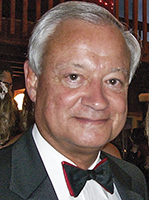
Counseling New Leaders for the Unseen and Uncertain
 |
| Robert Monson |
“COVID has changed everything!”
That was the first comment from a superintendent — I’m calling him Paul to keep his identity anonymous — with whom I’ve been working this year as a mentor. Paul was in his first month of his first superintendency, leading a small suburban district not far outside New York City.
Paul previously had worked in two high school principalships with student populations of 650 and 2,800 students. He had received his Ed.D. in educational leadership four years ago.
His first day in his new job back on July 1 started with an 8 a.m. school board meeting and ended at 8 p.m. with the conclusion of a “drive-by commencement” for the graduating seniors that had been postponed from its original date in June.
Without Easy Answers
The school superintendent’s position never has been easy. As former AASA Executive Director Paul Houston once observed, “The public treats the superintendent like a piñata. They just keep beating on it in the hope that something good falls out.” Now add the challenge of running schools in the midst of the COVID-19 pandemic and drastic budget reductions that are likely to follow.
In his first two weeks in the new job, Paul conducted an online survey of students and parents to determine their preference for in-person or virtual learning as part of the governor’s requirement that every school district submit a reopening plan by Aug. 1. The survey results were evenly divided: half wanted in-person instruction, and half wanted only virtual classes for the fall.
When asked what he needed most, Paul replied: “I need time to think! COVID has presented us with a classic adaptive leadership problem.”
Ronald Heifetz, the Harvard Kennedy School professor who wrote Leadership Without Easy Answers, would likely describe COVID-19 as a “type 3 adaptive problem”: How to educate students safely with no vaccine yet developed. Or as Gene Krantz, NASA’s Apollo program flight director, bluntly put it back then: “Let’s work the problem, people. Let’s not make it worse by guessing.”
Twin Challenges
If you are a new superintendent reading this in fall 2020, I have suggestions, drawing on my recent collaborations with education leaders, for how to “work the problem” when COVID-19 and the new flu season are presenting simultaneous challenges in a politically polarized society.
»Accept that you are now leading in what the Army War College describes as a VUCA environment — one that is volatile, uncertain, complex and ambiguous.
»Learn as much as you can about how the school district and the community it serves have responded to previous emergencies. COVID-19 is likely to produce changes to the “ways we have always done things around here.”
»Stay up to date with scientific studies being published and identify a medical professional in whom you can confide and ask for assistance with processing the evidence. COVID-19 will remain a moving target.
»Spend time developing a relationship with each school board member, principal and union leader in the school district. You cannot meet this challenge by yourself. Your job is to ask the right questions in search of common interests (namely, the children). Resolve to “solve these problems together!”
»Build a consensus of opinion among stakeholders about the best course of action, then urge all parties to communicate the same message to the community.
»Attend to the care of your loved ones: they need you, too.
ROBERT MONSON, a superintendent for 20 years in four states, is an adjunct associate professor of educational leadership at Teachers College, Columbia University.